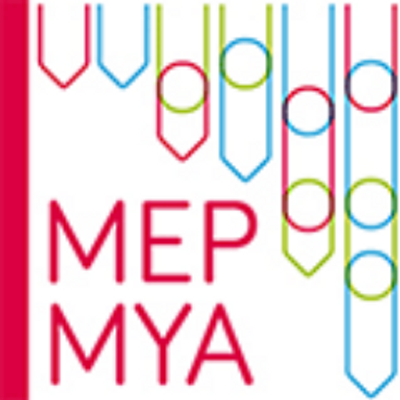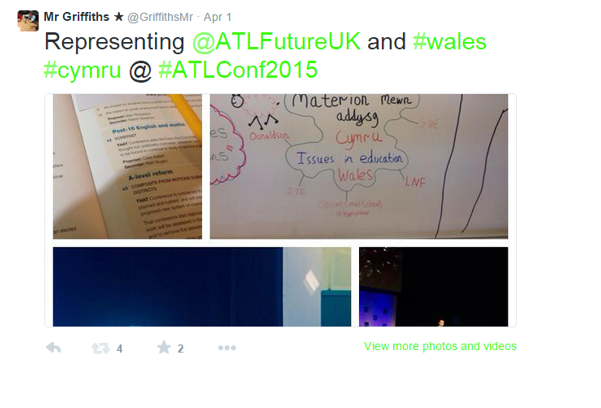Goals and Lessons Learnt 2015/2016
2015/2016 Goals
The goals I set for 2015/2016 were,
1) Make better use of
the cluster networks through sharing resources.
Unfortunately this
has not really been achieved partly due to moving school midway through the
year. I was part of both a sports partnership and global learning program that did
lead to a few extra resources and the sharing of CPD between schools before
moving in January. In the school in Cardiff I found that there was sharing of
resources between classes and we were pretty well resourced as a school so
sharing with other schools seemed less important. I also feel that this goal is
difficult to achieve when not in a leadership position and with existing
networks already in place. The school already had partnerships with universities
to use sports and science facilities and I do think this is important so if it
wasn’t in place in the future I would look to set it up.
2) Host a CPD event (on
use of twitter and sharing best practice if allowed by SLT).
This was achieved and
can be read about in more detail in a previous post but ultimately I was able
to help lead the school in the development of twitter taking the number of
followers from 3 - 300. The experience of leading training on a new development
in front of 30 staff was quite daunting but also very rewarding.
3) Utilise the teaching
assistants within the school more effectively (small group work and different
interventions including utilising the school garden).
Again this goal was
perhaps achieved before Christmas but the situation was different after Christmas.
Two mornings a week all of KS2 was taught by myself and 3 TA’s and I used a
sheet to record progress of the learners that was kept up to date and the staff
did complete this well. It also gave them ownership of an area of learning
(Welsh, Reading and Spelling) allowing me to concentrate on Maths which I found
a good use of my time.
4) Focus on spelling.
Spelling was poor in my old school and even with the introduction of
spelling bees to try to combat this it still needs work. Children seem
to find it
more difficult to spell now and this is something that needs to be
looked at
in 2016/2017
5) Run more lunchtime
clubs that have a clear focus (e.g. news group and competition prep).
I ran a number of
clubs in 2015/2016 that focussed on numeracy, literacy and this including
leading a team to second place in a public speaking competition. This was a
great achievement as the school had never entered before and it helped to raise
the profile of the school.
Goals for 2016/2017
1) Improve my own
grammar in line with the increased focus on grammatical terms in the English
curriculum.
2) Lead another CPD
session this could include sharing the results of my MEP project.
3) Complete my MEP
4) Finish my book the
first three years and continue to write about education
5) Find a new way to
improve learners spelling.
2015/2016 Lessons Learnt
Lesson 1 – The school needs to fit the teacher.
Unfortunately the school I was working in 2015/2016 is due for closure
in a county reshuffling which I have written about previously. This meant that
this academic year I have been looking for a new school. My first interview was
in another school that was slightly bigger than the current one in North Wales.
I had a lesson observation and an interview and both went well with the
feedback being that somebody else seemed to fit better. I wasn’t too upset as I
wasn’t really excited by the post. Shortly before the Christmas holidays I was
invited to interview at a school in Cardiff this was much more exciting as I
felt that it would give me a much more interesting experience and by good for
my personal development as the school was in a city and had 10x as many
children. I had an incredibly rewarding two terms at the school in Cardiff
which will form much of this post and the school definitely fitted my aspirations
and we were both strengthened by the appointment. The post in Cardiff was only
for two terms but this was fine as following the completion of three years in
Wales to receive my Masters funding I was looking for a post in London for
2016/2017 the first interview was for an exciting post as a PE coordinator in
London the lesson had to be on grammar using a popular text and although some strengths
were recognised the school decided not to invite me to interview. On reflection
I had not really liked this school and could not see myself working there
although it was quite crushing to not even be seen by the head teacher. I kept
trying and was invited to meet the head teacher and have a tour round another
school on a Saturday in May. I was very impressed that the head teacher was
happy to allocate me time on a Saturday to view the school and even more
impressed that she was willing to come to Cardiff to observe me. I love the
Christian morals of the school and have now spent a few days there each time
enjoying working with staff and children. I am excited to begin teaching there properly
in 2016/2017.
Lesson 2 – PPA is better when it is at the same time as another teacher.
I have been lucky enough this year to work alongside a very experienced teacher
who started teaching in the school in 1980 over this time she has really worked
out what is worth spending time on and what is not. Having PPA alongside
another teacher allowed me to share and discuss planning and also avoid
procrastination. The PPA time I have spent when shared has been much more
effective and cut down the work I need to do outside of the PPA time.
Lesson 3 – Have a marking table
Organising your space effectively can help you be more efficient and one
key way of doing this is to have all work to be marked located on one table. It
is better to avoid piles of marking anyway by marking work during the lesson
but if that is not possible then at least you can make things easy for yourself
by keeping the work open on the page.
Lesson 4 – Class dojo can be very effective
I had seen class dojo on placement and also used by another teacher at
Rhewl but never really seen it as being that effective. I felt it would be hard
to give points during the lesson and I do struggle a bit at this but giving
children points for being ready and for completing a good amount of work seems
to have a positive effect on behaviour in the classroom. It also avoids using
too many stickers!
Lesson 5 – Don’t be afraid to move the tables
I have never really been afraid to move the tables be that moving them
out the way to create a spaceship in the classroom or moving them into lines
for a Victorian style lesson but this year I moved them for good. I felt that a
horse shoe shape that I had seen it special needs classrooms would be
beneficial for all learners it allows them to see the board easier as they are
all facing it, they can still collaborate with a partner and it allows for face
to face conversations as I move around the classroom. One strength of this is
that it has been recognised as an effective strategy by other staff in the
school with them moving or considering moving their tables. I have felt an
improvement in concentration, listening and the quality of quantity of work
following moving the tables.
Extra lesson
I feel that I have learnt a lot this year and it is difficult to just
choose 5. I have written blog posts on the others but the key I believe is to
not stop developing as a teacher. By reading about, watching videos on and
discussing education with fellow teachers I am able to find new solutions to
problems and novel ways to keep children engaged.









































